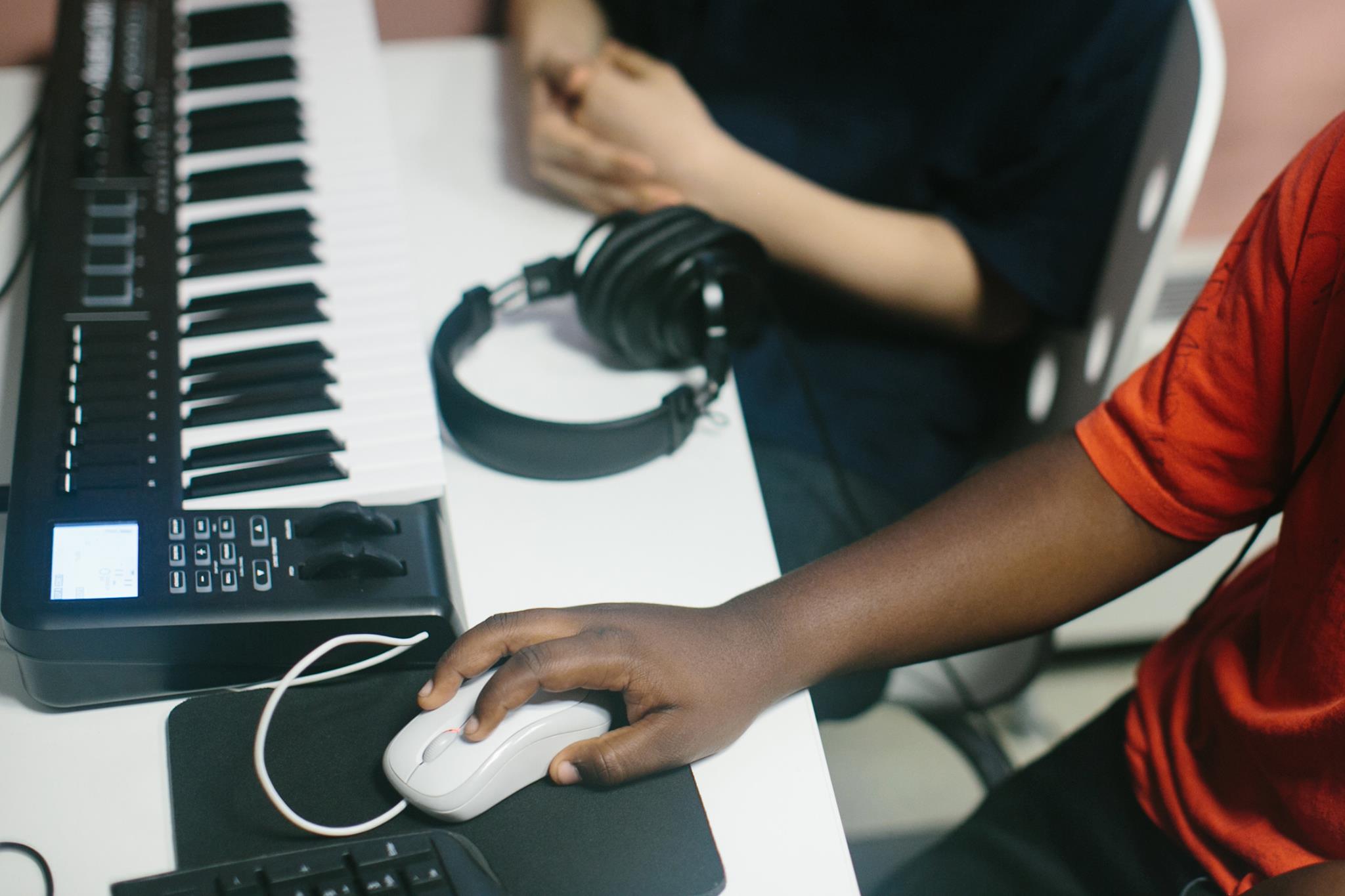
Community Sourced Mixtape Project lets traumatized kids express themselves
A new initiative by the Women’s Center & Shelter of Greater Pittsburgh is designed to engage older children who’ve suffered trauma from domestic violence. The Community Sourced Mixtape Project gives tweens and teens– often too old for toys and embarrassed by playtime activities for their younger siblings– a creative outlet to express themselves, through music and the written word.
“There’s a permanence to printed words that commands more respect than digital text,” says project instructor Amos Levy. “I like giving words created by youth this kind of importance. It suggests that what they do has value and power, and tells adults that they should pay attention.”
The project grew out of a series of walk-in DJ workshops at Assemble in Garfield, hosted by educator Jess Gold. Levy, an artist, educator and DJ, was teaching one of the sessions. A Women’s Center and Shelter advocate approached the pair about sharing the program with the shelter’s young residents, so the two linked them with writing materials, turntables, a mixer and other recording equipment. Over time, Gold and Levy honed in on their specific roles, with Gold leading writing workshops—a natural extension of her involvement with Literary Arts Boom (LAB)—and Levy running all things audio.
“As we developed a concept for the program, we pivoted away from sharing the compositions of other people,” Levy says. “We were interested in creating an experience that focused more on self-expression.”
With funding from the Hive Fund for Connected Learning at the Sprout Fund, WCS purchased its own recording equipment last fall and set up a studio where it now offers year-round workshops that equip youth with the skills and resources to blog, design e-magazines and produce podcasts. Teens and tweens—and often their moms and younger siblings—watch YouTube videos of youth poetry performances and music videos to inspire their creative writing and storytelling processes, which embrace analog tools like pens and paper. Though residents and the instructors primarily work with digital devices to record and host their “mixtape” compilations, they produce magazines in both digital and print formats.
The program blends elements of trauma-informed care and expressive arts therapy with the technology that teens love. Some participants have taken guitar and piano lessons, while others have never touched an instrument. Their interests inform the output of the workshops, which have produced poetry and hip-hop, rock and country music.
The kids choose DJ names as both a confidentiality measure and a way to invent new personas. DJ Steel’s lyrics grapple with peer pressure: “I wear a mask with my friends/Be a person I’m not.” DJ AKA writes about helping animals escape a pet store: “All of us just wanna be free/A home and a place to be/You and me.”
“Some of the songs are really deep and talk in a roundabout way about their home situations. And others are about mac and cheese. It’s a great variety,” says Nicole Molinaro Karaczun, director of services at WCS. She oversees the program with Chris McAneny, a children’s advocate for the shelter.
“The pride they have and seeing how much Mom is affected by what they’re able to do is inspiring,” McAneny says.
In addition to building teens’ skills and confidence, the program has the potential to break the patterns of abuse that can span generations, and potentially to save lives, Karaczun adds.
“Shutting down communication can lead to replicating the cycle of violence. We want to take advantage of any chance we have to help kids open up and talk,” Karaczun says.
Featured image courtesy of Jess Gold.